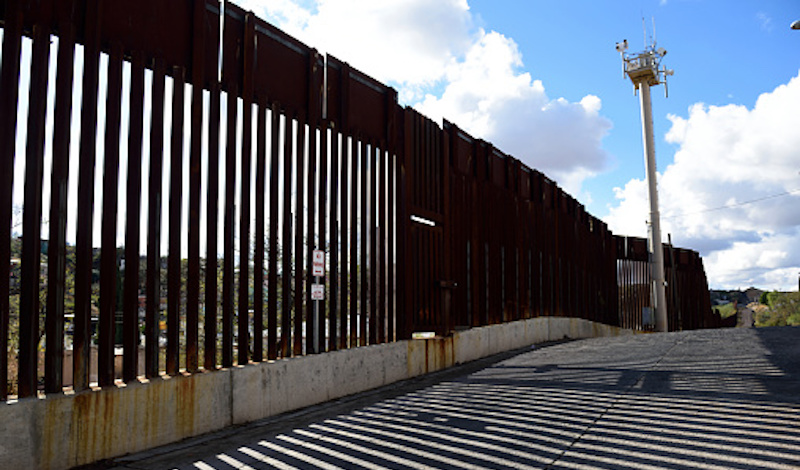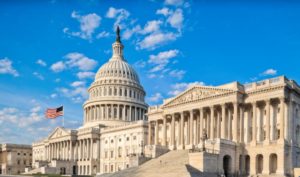
Scholar examines the former Attorney General’s increased political oversight of immigration courts.
“This is a new era. This is the Trump era,” former U.S. Attorney General Jeff Sessions told an audience of immigration officials in April 2017, as he discussed his agenda for criminal immigration cases.
In the “Trump era,” the U.S. Department of Justice has taken various actions to align the decisions of immigration judges—who are Justice Department attorneys that decide immigration cases—with the President’s policy goals. This presidential influence over immigration policy has serious implications for the independence of agency adjudications and, in turn, for the individuals whose rights agencies adjudicate, according to Catherine Y. Kim of the University of North Carolina School of Law.
Executive branch control over agency activity is not new, Kim notes. Since the 1980s, the White House has reviewed agency rulemakings. The President also gets to appoint agency leaders to serve at his pleasure. Although the executive branch oversees rulemaking processes, many experts understand that it should not interfere with agency adjudications. After all, previous administrations have, as a matter of convention if not law, kept agency adjudications insulated from the politics of the executive branch.
But the Trump Administration has departed from that longstanding tradition, particularly in the immigration space, Kim argues.
Kim asserts that Sessions, as Attorney General, promoted the Trump Administration’s immigration policy goals through adjudications. For example, Sessions limited individuals’ ability to avoid deportation by preventing immigration judges from taking certain deportation cases off their docket. He also restricted asylum eligibility for domestic violence victims.
In addition, Sessions sought to clear a “backlog” of cases by setting requirements for immigration judges to move through their cases faster, on pain of “negative performance reviews,” Kim notes. Although Kim agrees that the backlog is “in desperate need” of fixing, she asserts that these changes not only aim at cutting down on caseloads but are also “inextricably linked to case outcomes, heavily favoring deportation rather than relief from removal.” She explains that the government can work within these shortened time frames, but the individuals the government is pursuing are likely to have a harder time due to the evidentiary burden they must carry.
Sessions’s past statements relaying his immigration policy goals to immigration judges could also have made those adjudicators “feel pressure” to come to a deportation decision more quickly. Kim observes that Sessions often repeated to new immigration judges that they were statutorily required to “perform such duties as the Attorney General shall prescribe.” Kim also notes that Sessions was “particularly vocal” in asserting that meritless claims have led to the case backlog.
Some empirical data indicate a correlation between the Trump Administration’s changes and a higher rate of deportation rulings. For example, the number of removal orders issued from February 2017 to November 2017 was 30 percent higher than it was in the same period in 2016.
Kim argues that policy changes under the Trump Administration have constrained immigration judges’ “ability to carefully consider and deliberate on cases”—even though the law, as Kim sees it, requires agency adjudications to be sufficiently insulated from executive oversight and entitles individuals to procedural protections during those adjudications.
Kim cites two seminal administrative law cases, Londoner v. City of Denver and Bi-Metallic Investment Company v. State Board of Equalization of Colorado, which reflect the idea that individuals are entitled to a heightened level of protection against “majoritarian preferences.” That protection—which derives from the Constitution’s Due Process Clause—is necessary because adjudications are directed at “specific individuals” and not the general public. The general public’s interests are already protected against the agency activity through the electoral process, while the interests of specific individuals are not.
Kim notes the particular importance of due process values in the context of immigration cases—especially removal proceedings. The “individual interests” in these cases are “unusually weighty,” since individuals subject to removal proceedings face detention and deportation. Independent judges are “crucial to moderate the excesses of raw majoritarianism” during adjudications.
Kim would not eliminate executive branch oversight altogether, however, for executive branch oversight keeps agencies “democratically accountable.” Ideally, the executive branch would oversee the agency’s “broad policy choices” but refrain from meddling “in the decision-making process of career adjudicators,” argues Kim. That way, the agency would still be accountable to the electorate by answering to the overall policy goals of the executive branch, but individuals subject to adjudication could still stand a chance against the majoritarian will.
In addition, Kim argues that adjudicators should be independent enough to provide a “check” on the executive branch. The executive branch has expansive authority over immigration matters, leaving Congress and the judiciary with little power to limit any “unfettered unilateral power” of the executive. Kim insists that immigration agencies’ independence is, in this sense, all the more important.
Kim’s paper appeared recently in the Emory Law Journal.



